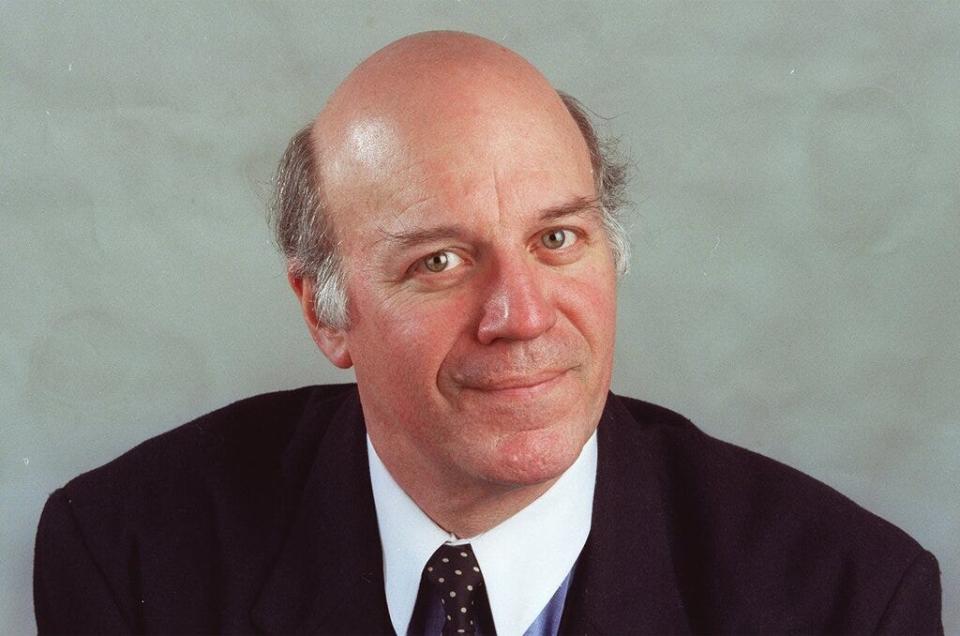Opinion/Brown: Cape’s 'senior analysts' offer wisdom for how to improve politics
Part 1 of 2
For several years, I’ve been teaching classes at the Academy of Lifelong Learning at Cape Cod Community College. The program offers a wide range of subject matter for 50-year-old-plus Cape Codders. Knowing an election was coming, I offered an “Election Roundtable” … two roomfuls of seniors during two successive 6-week sessions. Here was a chance to discuss politics with educated seniors with lifetimes of experience and reflection.
Each of us agreed to come to our final class with ideas for improving our country’s politics. Rick jumped in first with a proposal to repeal the Supreme Court's Citizens United ruling that opened the floodgates for private and corporate money to pour into our electoral process.

Hillary Clinton reportedly spent over a billion dollars on her campaign — and lost! Sandra found that an encouraging piece of news. She may, however, have been the only optimist in the room about how well our electoral system will survive with much integrity left to it.
Why, after all, would corporate donors and special interests part with their cash if they weren’t reasonably confident they were going to get their money’s worth? That it’s legal — and even customary — should trouble us all the more. There was little confidence in the room that a government hip-deep in special interest money will ever give it up voluntarily.
Several people insisted there should be term limits for all public offices.
Election 2022 results:Buckley win sets new direction for Barnstable County Sheriff's Office
Suzanne wished there was some way to guarantee that people running for office were moral people, not driven by self-interest. We got some good discussion on that one, trying to clarify how we would know a moral person when we saw one. In the end, everybody wanted politicians who represented the will of their constituents rather than, say, the will of donors and special interests.
Should there be age limitations as well? Understandably, this was a tricky question for a room packed with senior citizens. We didn't get resounding support for that idea, but it was pointed out that most people in professional life are expected to retire by 70 to 75 years of age.
Cape elections 2022:As the new district attorney elect, Galibois promises to be in touch with community
I asked how the idea of ranked choice voting might appeal to the group. The system might attract more interest if more Americans understood the idea better. In some ways, we’ve tended to like the simpler winner-takes-all approach, even though as currently set up, our electoral process tends to favor more extreme candidates. Even though the group preferred more centrist politicians, it remained a tough sell.
Bob worried that vast bureaucracies — honest or not — tend to frustrate the popular will. Sandra let us know she didn’t trust the federal government to handle essentially anything, let alone publicly financed elections. The class had mixed opinions. About money in politics, the group was overwhelmingly uncomfortable with it. Most seemed more confident in the integrity of civil servants than of elected politicians.
Let them do the cooking:Cape restaurants, grocery stores offer Thanksgiving feasts to go
We didn’t get into the media much but agreed on the deliberate manufacturing of falsehoods — and their instant delivery to millions — poses one of the most dangerous threats to our democratic process.
Over several sessions, the idea of a compulsory 2 years of national service for all 18-year-olds continued to have broad appeal. Possibly, student loans could be linked to this idea, so willingness to teach, do social work or medical work in rural or inner-city settings could get their student loans paid off. (It’s particularly difficult for teachers and social workers to pay off their college loans with the salaries being offered today.)
We had a good discussion about how our economy has shifted over the last few decades from manufacturing to finance … playing sophisticated games with pre-existing wealth. Throw in the loss of jobs overseas — or to robotics — and there was serious concern about a systemic collapse of the middle class. How can we trust our electoral system to hold if our financial system doesn’t?
Lady of the Dunes:DNA databases may help solve Cape Cod cold cases. What to know about privacy vs safety.
We had a unanimous agreement that our government would be more honest and more representative if electoral districts were not gerrymandered.
Here's the thing, though. What we did was labor intensive. We met once a week for six weeks to have our discussions. What we built, however temporary, suggests the amount of work it's going to take for Americans to un-polarize themselves. We have a lot of work to do and not a whole lot of time left to do it. Little groups like ours around the country are proving that it's possible to take America to a brighter place. But our politics and our media have become dangerously polarized and narcissistic. God help us if we decide that we like it that way.
Lawrence Brown is a columnist for the Cape Cod Times. Email him at columnresponse@gmail.com.
Gain access to premium Cape Cod Times content by subscribing. Check out our subscription offers.
This article originally appeared on Cape Cod Times: Politics will improve when gerrymandering, donations are outlawed

